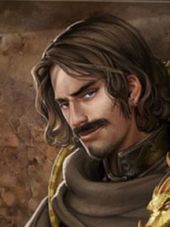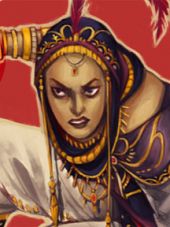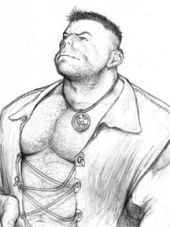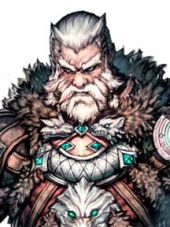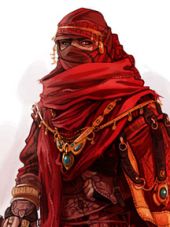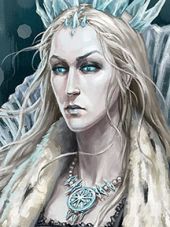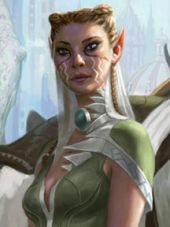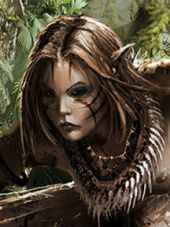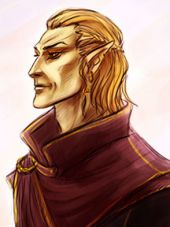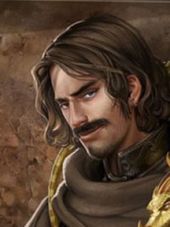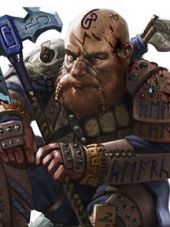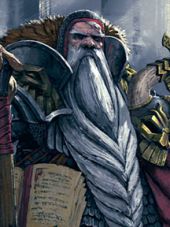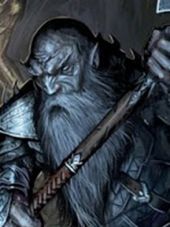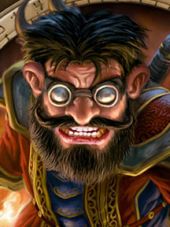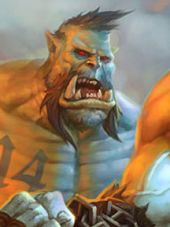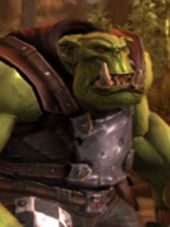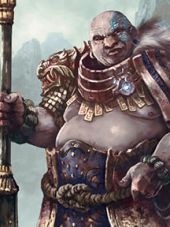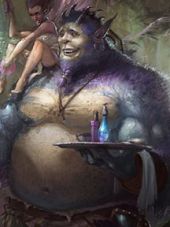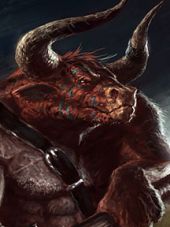Races of Calador
Contents
Humans (Roga)
| Threxen The Threxen people are the most populous of the human bloodlines in Threxantra. They are descended from the ancient Carlitia, Thissia and Thexdoni people, once separated by oceans before their lands had been merged together through arcane means to form what is now Threxantra. Threxen people can stand from 5' to a little over 6' tall and weigh from 125 to 250 pounds. Skin shades range from olive to pale and hair color from black to blond (curly, kinky, or straight). Threxen garb and grooming varies by region. Daltes men wear kilts and trousers with tunics and flat caps and bonnets and prefer groomed beards or mustaches and short hair and women grow their hair long and wear long skirts and sashes, often leaving one breast bared. In Talaria men generally wear pants, coats and hats with wide brims and/or tall crowns, have shoulder length hair and shave or have sculpted mustaches and goatees. The women wear long dresses that offer more modesty than their Daltes neighbors. In Estland, fashion changes often and holds a much more important role in their society, especially amongst the nobility, but the more rich, intricate and extravagant their appearance and garb is, the more impressive they are viewed by their peers.
| |
| Darshinian The people of the distant tropical continent of Darshiniath were the first people to build crafts capable of long sea voyages. They had discovered Threxantra long ago and established a settlement in what is now Zalcoryn. Their ships are often called "water palaces" by others due to their massive size and ability to carry a great many passengers and cargo. The Darshinian highly value art, music, exploration, trade and commerce and their people have spread throughout the world. Darshinian mages tend to specialize in illusion or elemental magic. Their cities are walled labyrinthine structures, each with a massive ziggurat at its heart where the priests live and the gods are worshiped. All of Darshiniath is ruled by a man chosen by Zeus and a woman chosen by Athena and they are attended and advised by priests representing each town and city in the land. Those other provinces are governed by their priests.
Darshinians have dusky olive to brown skin with bright almond shaped eyes of yellow, blue or green and dark hair. Men and women dress in a similar fashion, preferring long and flowing robes and layered clothing of colorful gossamer and silk and fez hats. Men and women generally grow their hair (and beards) long and will often wear it in one or many braids with an assortment of ornamentation, including ribbons, charms and bells (save for the clergy who shave their heads). The use of cosmetics, scented oils and perfumes is equally popular amongst both sexes.
| |
| Hoventi The Hoventi are the half-orcs of Salista Hoventesh & Krive Del, though the term has come to be used for all half-orcs. Religion: Words go here.
| |
| Nothgar The Nothgar are rugged mountain barbarians that live in the cold tundra and mountains of Noth. Nothgar have giant blood in their veins and are considerably taller, broader and more heavily muscled than a typical human. Nothgar also have longer livespans that other humans and may live to 120, maintaining their good health and vitality for a long time, though very few die of old age. The nothgar typically have light or pale skin and hair that ranges from blond or ginger to brown to black. Despite the cold of their homeland, the nothgar are often only lightly clad, exposing skin which is frequently elaborately tattooed. Nothgar culture is highly individualistic with a focus on personal success and glory, which as a whole brings glory to their people as a whole, thus they seek to accomplish adventures or mighty feats in order to prove themselves, to build their legend through valor and great victories. Every nothgar hopes their tales will be told by skalds and celebrated amongst their people with story and song.
The nothgar have a great sense of personal honor, for an individual without respect from others is already forgotten, a fate far worse than any death. For many nothgar, the focus on prestige means they are willing to accept any challenge in order to prove their worth, though for some the pursuit of prestige translates to bragging, bullying, unwise decisions and an unwillingness to listen to reason. The nothgar are a hearty, proud people - quick to anger but then quick to forgive. They respect those who can best them in a fight so brawling is common. The nothgar proudly trace their worthy ancestors through many generations and often pass a common name through a family, but ancestry and family connections do not grant automatic respect. Everyone is judged not by their lineage or associated group but by what deeds they have done.
Religion: The nothgar worship totemic spirits of the natural world and totems of idealic concepts.
| |
| Conox The Conox are humans that are native to the harsh deserts of Tranzconox. Religion: Words go here.
| |
| Arrisian The people of Arris are taller and more slender than most humans with pale skin, eyes and hair and lean towards androgyny. The Arrisians are descended from the scholars, intellectuals and spellcasters that had followed Sirra GoldenStar to her magically created continent in order to create a erudite utopia. Before the events of Anaya's Folly, the use of magic existed in every aspect of Arrisian culture and lifestyle. Magic was used by cooks, tailors, coach drivers, guards, politicians, even children who began receiving instruction in the use of magic as early as they were able to learn to read. The people lived in an impossibly tall city crafted through magic that was protected from the icy cold of the land surrounding it with a magical barrier and ruled by the wizards of the Rose Tower at the heart of the city. Following the fall of the magical age, the Arrisian way of life was devastated. Most of their leaders perished or went mad, craftsmen lacked the skill to create their goods without magical aid, magi soldiers were defenseless against the denizens beyond the city and the barrier that protected them all had vanished. Without magic to summon food and open portals for trade, the people were forced to abandon Arris City to the unforgiving ice and wind of the land.
Arrisians are now scattered around the continent of Arris, most of them living near the shores. They are hunters, whalers and fishers, as the frigid lands of Arris are filled with strange creatures that their mage ancestors had created to populate the landscape around their city. The people have exchanged the silks and magically intricate lace of their ancestors for hides and furs.
Magic remains an important aspect of Arrisian society. Those who show potential for the arcane arts are apprenticed to mages and installed into important positions in the community.
|
Elves (Ilfyd)
| Misanti The high elves of Misanta. Religion: Words go here.
| |
| Sethi The wood elves of Misanta & Katrica. Religion: Words go here.
| |
| Scindo Other elves call them the lost or the fallen, but the scindo know they were the first elves, the true high elves of the world. They are most commonly found in Krive Del and Salista Hoventesh, but they can be found anywhere in the world where money or power is a commodity to be gained. The scindo claim to be descended from the legendary lands of Ydis before the world had been shattered. Those who fled and survived would become the fei of Darshiniath and the scindo of Manix. The scindo found no welcome amongst their insular Misantan kin, and hostility from dwarves of the old Nakaltia regime. They traveled further north and through charm and guile, they secured themselves new lands from the ogres of Krive Del and later would expand into the orc dominated territories of Salista Hoventesh. The scindo found themselves to be well suited to manipulating their brutish allies and quickly ensconced themselves into positions of commerce and political power and wealth throughout both regions. The scindo are on average about 6 to 12 inches taller than a human with wiry, athletic builds. They have golden skin, pink, grey or blue eyes and white, grey or black hair that they often dye exotic colors or shave entirely. Generations in Threxantra amongst other races has led most scindo to having some traces of other bloodlines and facial hair is not uncommon amongst them and those who can grow it often do. They love to decorate their bodies with tattoos and piercings and wear fine clothing and jewelry that expresses their wealth and status.
| |
| Asana The star elves, fae blooded, no homeland, generally live amongst humans. Religion: Words go here.
| |
| Turost The "swamp elves" of Dontholl Mex. Religion: Words go here.
| |
| Huldra The drow, dark elves of the Underdark. Religion: Words go here.
| |
| Besarian The avariel, winged elves of Misanta. Religion: Words go here.
| |
| Fei Descendantas of the elves of Ydis, these tall nomadic elves roam the tropical lands of Darshiniath. Religion: Words go here.
|
Dwarves (Gol, Dwav)
| Nycandrian Dwarf The hill dwarves of Nycandria. Religion: Words go here.
| |
| Nakaltian Dwarf The mountain dwarves of Nakaltia. Religion: Words go here.
| |
| Duergar Dwarves of the Underdark. Religion: Words go here.
|
Gnomes (Nok)
| Thriken Thriken gnomes can be found primarily in Nakaltia and Striker. The gnomes of Striker had long ago settled in Tranzconox, establishing a new nation and now live amidst humans, gnolls, kobolds and goblins. The gnomes in Nakaltia are relatively new to living amongst their dwarven allies. The ancient gnomish homeland of Northoll had been destroyed, sank beneath the waves by it's own people in order to stop the advance of the Nycandrian army. By sacrificing their own homeland rather than give it up, dealing a devastating blow to the military might of Nycandria, halting their advance and forever taking away the tactical advantage that Northoll would have given them against the west, the gnomes became heroes. Thriken are ambitious folk, whose lives are validated by a masterful command of the scientific laws of the universe and unbridled creativity. This outlook on life makes them feel that to be pitied is unbearable, even insulting, though they know their allies do not do this intentionally. They have always been of a race of inventors, artisans and scholars throughout their history, generally focused on escaping and avoiding conflict. Great value has always been placed on one’s ability to avoid trouble and stay out of the way of others. Children’s games often involve elements of stealth and amongst adults drawing attention to one’s self is considered a breach of etiquette. Legends of gnomish heroes are usually not of powerful warriors but of subtle tricksters, who sneak past or trick their opponents rather than vanquishing them in combat. This in part comes from the long-standing issues gnomes have faced, which is their miniscule size compared to larger predators or enemies. However, with the loss of the gnomish homeland of Northoll and years of hardship and increased association with the dwarves of Nakaltia or the harsh races of Tranzconox, many gnomes have become more bold. While gnomes continue to put high value on wit and intelligence, gnomish warriors and adventurers have become more common, and as a race they are more likely to talk back to Tall Folk than in the past.
Most Nakaltian gnomes live amongst the dwarves in sprawling cities that honeycomb mountains and the depths below. They have accepted the laws and authority of the region, which they become increasingly involved with. Striker gnomes live perched atop neatly packed, tiered cities of stone and glass. Surprisingly, given their harsh surroundings, they live relatively comfortable lives with many conveniences, allowing many to focus on art and invention, though this is largely because gnomes are also the wealthy and ruling nobility in the nation. Striker survives through trade, importing and exporting goods from several neighboring regions. In addition to devices of gnomish ingenuity, they export glass, stone, stone and pottery vases, linen, papyrus, gold vessels and jewelry, ox hides, ropes, fragrances, lentils, and dried fish. Striker is ruled by a complex hierarchy of wealthy property and business owners and the Swiftstriker nobility. Their people consist primarily of humans and goblins with a mix of kobolds and gnolls as well, all of whom make up the lower and middle working classes.
| |
| Svirfneblin Deep gnomes of the Underdark. Religion: Words go here.
| |
| Seltome Forest gnomes of Kythennia act as the bridge between the realms of fae and mortals. Religion: Words go here.
|
Hobbits (Laeo)
| Hobbit Hobbits! Religion: Words go here.
| |
| Ilian The ilian of Valexys are descendants of a race called the kender from another world that became stranded when their strange magical ship crash landed in Valexys. Religion: Words go here.
|
Orcs
| Orc The orcs of Salista Hoventesh are half a head taller than a human and have twice the body weight made entirely of muscle They have beady red or yellow eyes and their skin ranges from blue or green to grey with hair that is usually grey, brown or black. They have massive jaws revealing pointed teeth, dominated by large lower canines that jut up from their under-bite. They respect power and strength, and naturally tend towards becoming bigger and stronger as they rise through their society. While they lack the education of more advanced races, orcs possess immense cunning and are quick learners, but rarely adopt new tactics to replace their fondness for close quarters brutality. The orcs of Salista Hoventesh are divided into numerous tribes that are often at war amongst themselves, though the western tribes have mostly allied in order to present a stronger unified front against their neighbors in Krive Del. Gnolls, bugbears, scindo and half-orcs are commonplace amidst orc tribes, as well as human and goblin slaves. While many orcs continue to live nomadic lifestyles, hunting and raiding to survive, more and more of them have begun to settle and build towns. This change is often attributed to guidance from the scindo, who frequently act as advisers and chancellors for orc leaders and hold various other positions of power and influence in regards to leadership and commerce.
Orc culture is dominated by the concept of strength. The strongest and meanest orc is the leader until a stronger orc comes along. Amongst the nomadic tribes, there is no law (and only a small handful of laws in most orc settlements), and therefore no crime. If an orc feels wronged, he can challenge the source of his grievance to a pit fight. Once the fight is over, the matter is considered settled. Orcs have no concept of pity; to an orc, the weak are simply weak, and are beneath them in society. An orc attains a higher social rank by fighting and defeating members of that rank.
| |
| Skal The skal are larger than their hoven cousins, but not nearly as bright. These large creatures have long arms and short legs, huge slabs of muscle move under tough green skin, and their jaws are lined with vicious fangs that jut out from their underbite. They have beady red eyes, a generally foul demeanor, and are naturally bald. Normally six feet tall, they are up to seven feet tall when stretched out of their characteristic stoop. Religion: Words go here.
|
Ogres
| Torgan The torgan ogres of Krive Del, the chosen children of Rallos Zek, are a military culture and their society, technology, faith and relationships are very much focused on supporting war. Society is built around military units which ogres become a part of from childhood. Non-military tasks, such as farming and trade, can be left to slaves (which includes every race save for the scindo & minotaurs). But no matter an ogre's vocation they are always viewed as a soldier and view life like a soldier. Weakness and foolishness from individuals is viewed with particular contempt, and can result in an ogre losing status or being cast out of their squadron, or worse, their name being struck from the histories and condemned by the priests of Rallos Zek. Most relationships are casual and rarely do ogres mate for life. As Rallos Zek is recognized as every ogres sole parent, families are generally not recognized and adult ogres have very little contact with their parents or offspring. As soon a child is weaned, they are assigned to a military squadron. This is their first squadron and they are trained as a military unit under the supervision of a war priest and until their squadron no longer needs supervision, at which point they are recognized as adults. Ogre young are taught to unify and define their own social structure and the squadron shares a root name which they incorporate into their surname. As biological families have little involvement with the raising of a child, their squadrons are viewed as ogre's family and the bonds of loyalty and kinship formed between them are as strong as those of other races' families. Though some ogres leave, change, or lose their squadrons, these strong bonds usually leave a deep impact on them.
The torgan are a thick, heavily built and muscular race and are on average stand at nine feet in height. They have small dark eyes and large lower jaws revealing sharp teeth and two elongated tusks. Their skin ranges from ruddy to olive with hair colors ranging from red to black. Ogres are exceptionally hirsute, naturally bearded and with thick manes that grow all the way down their spines, though they tend to keep their beards short or shaven to keep it from being used against them in battle.
| |
| Sethik Ogres of Kythennia and the favorite thugs of the fae. Religion: Words go here.
|
Minotaurs
| Volkar The minotaurs of Krive Del are aggressive and domineering race who believe in war and flame as a crucible that must be wielded to break the world so that it can be remade stronger.
|
Kobolds
| Kobold Words go here.
|
Goblins (Gorva)
hobgoblin
Gnolls (Vardog)
Bugbears (Orbaan)
Trolls
Abbagan:
Isenes:
Nothik:
Olcian:
Sand:
Sylvan & Fae
Dular (centaur):
Shela (centaur):
Astridir (pixie):
Satyr:
Undine:
Selkie:
Wemic:
More Races
kyanna (nezorah & sleeth extinct)
Bullywug:
Froglok:
Saleerandees:
Shissar:
Slekoth:
Quaggoth:
Tengu:
Vraethil:
Grandler:
Some call them mer or merfolk, the elves consider them to be their aquatic cousins.
Rofka:
Neogi:
Nezumi:
Thri-kreen:
Myconid:
BalGez-I'ir: dragonborn
Lycanthropes:
Thelmori:
Planetouched Races
Genasi:
Cansin:
Tiefling:
Aasimar:
Other Races of Manix
- Human, Kythellian:
- Human, Sistrithian:
- Human, Ydislian:
- Human, Trylidian:
- Human, Trythan:
- Human, Hagen:
- Elf, Syl hiklos:
- Elf, Chol'manderi:
- Elf, Ladian:
- Elf, Veldatiri:
- 'Elf, Shol:
- Elf, Tianne:
- Dwarf, Ourothian:
- Dwarf, Veldatori:
- Gnome, Seltome (forest gnomes)
- Gnome, Meris-Indriol:
- Hobbit, Tallan:
- Hobbit, Klimpshire:
- Kobold, Trylir:
- Kobold, Treela:
- Gremlin, Desevix:
- Gremlin, Tellusan:
- Deban:
